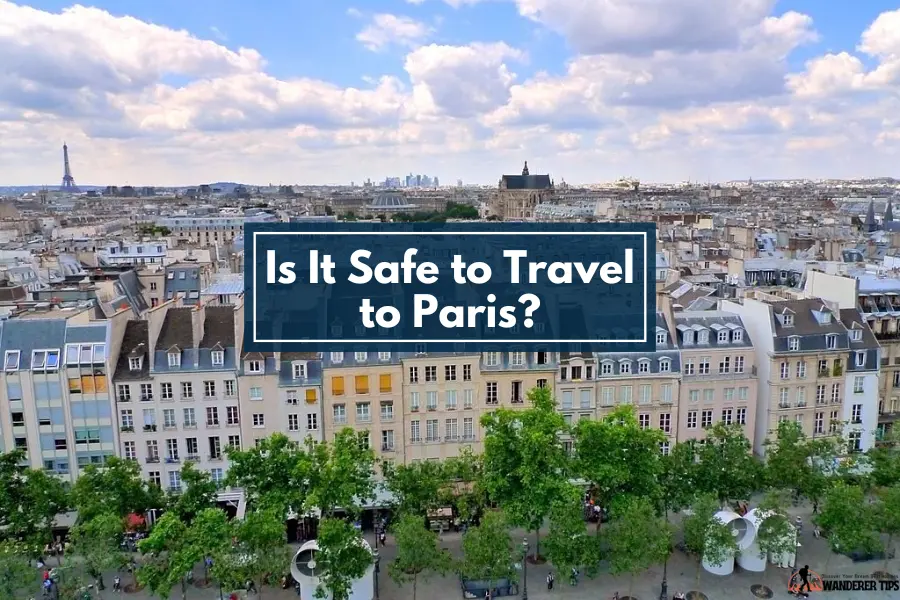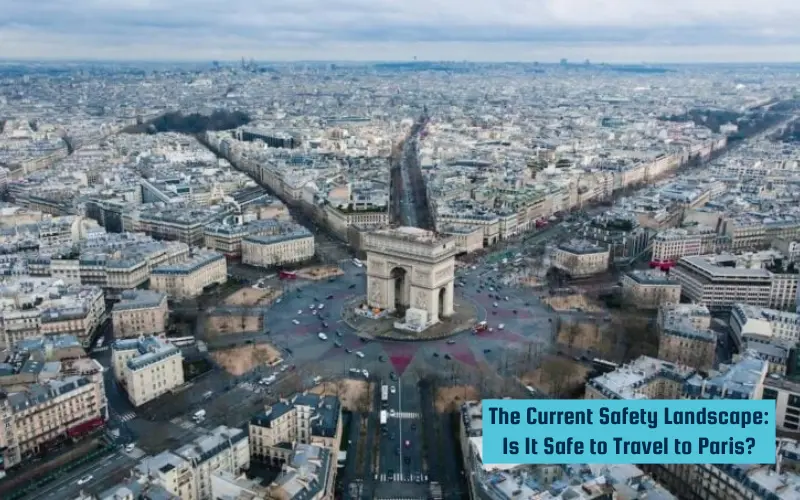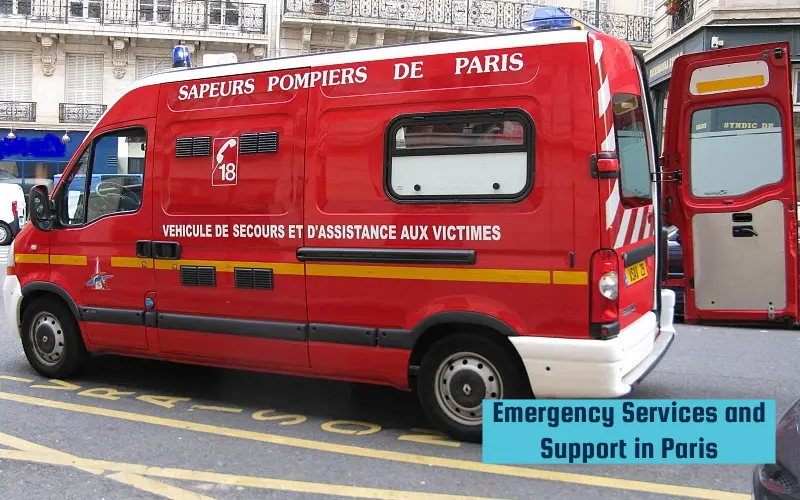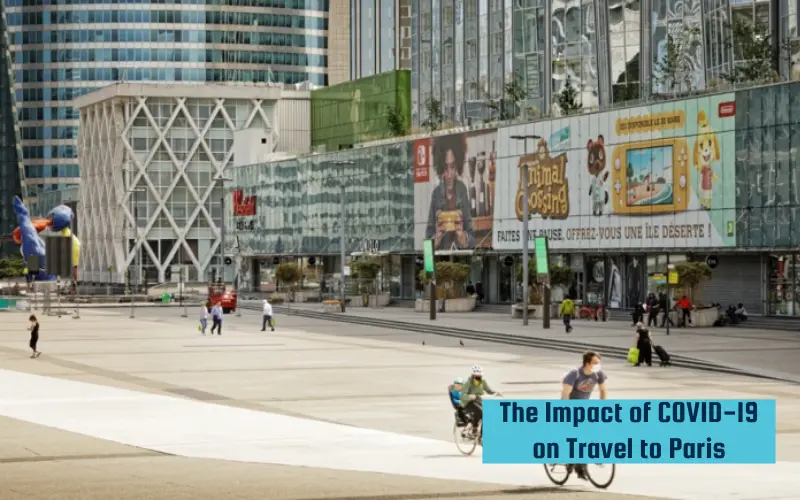Is It Safe to Travel to Paris? [Complete Guide 2024]

When it comes to planning a trip to the City of Light, the question “Is it safe to travel to Paris?” often looms large in the minds of many travelers. It’s a valid concern, given the global landscape and the mixed messages one might find online or hear from the news. We understand the apprehension that can come with traveling to a bustling metropolis, known as much for its iconic landmarks as for the busy streets and diverse crowds that define its character.
But here’s our promise to you: this article is designed to dispel fears and shed light on the real picture of Parisian safety. Is It Safe to Travel to Paris? we hopefully provide the most satisfying answer to your question. We’ve sifted through the latest data, spoken with locals, and analyzed travel advisories to bring you a clear, honest assessment of what it’s really like on the ground in Paris.
Our aim is to arm you with the knowledge and tips you need to navigate the city confidently and safely. Whether you’re a solo adventurer, traveling with friends, or bringing your family along, our comprehensive guide is your first step towards experiencing Paris with peace of mind and an adventurous spirit.
| Tip Category | Advice |
|---|---|
| General Safety | Stay aware of your surroundings, especially in tourist areas. Keep valuables secure and out of sight. |
| Scams | Be cautious of overly friendly strangers or unsolicited help. Verify taxi fares before starting your journey. |
| Nighttime Safety | Stick to well-lit, populated areas when exploring at night. Consider traveling in groups. |
| COVID-19 Precautions | Follow local health guidelines, wear masks in crowded places, maintain social distancing, and sanitize hands regularly. |
| Emergency Contacts | Save the number for emergency services (112) and the contact information for your country’s embassy or consulate in Paris. |
The Current Safety Landscape in Paris
Paris, much like any major global city, faces its share of safety challenges. However, it remains one of the most visited cities in the world for good reason. Recent statistics and reports highlight that, while petty crimes such as pickpocketing in tourist-heavy areas persist, serious crimes rates are relatively low. The French government and local authorities are continually implementing measures to enhance security, especially in light of global events that have heightened concerns around travel safety.
Governmental Advisories and Statements
Travel advisories play a crucial role in understanding the safety landscape of a destination. Governmental advisories regarding Paris typically focus on urging travelers to be vigilant, especially in crowded places and during significant events. It’s important to stay updated with these advisories as they can significantly impact travel plans and safety perceptions. The French government has also made concerted efforts to bolster security in public spaces, including increased police presence and surveillance in areas known to attract tourists, in response to past events.
By staying informed through reliable sources and adhering to recommended safety precautions, travelers can enjoy the myriad wonders of Paris with peace of mind. The city’s dedication to ensuring the safety of its visitors and residents alike speaks to its resilience and enduring appeal as a top travel destination.

Common Safety Concerns for Travelers
In the bustling streets and landmarks of Paris, pickpocketing and petty theft are notable concerns, particularly in tourist-heavy areas like the Eiffel Tower, Louvre Museum, and Montmartre. Thieves often work in groups and can be surprisingly discreet, targeting distracted tourists.
Scams Targeting Tourists
Tourists should also be wary of common scams, including the infamous gold ring scam, petition scams, and fake ticket sales. These usually occur in crowded places and involve convincing tourists to hand over money under false pretenses.
Nighttime Safety
While Paris is generally safe at night, it’s prudent to be cautious in less populated and dimly lit areas. Some districts, such as certain parts of the 18th and 19th arrondissements, may feel less secure after dark. Sticking to well-lit, busy streets is advisable.
Safety Tips for Traveling in Paris
These are the safety for travelig in Paris to confirm that Is It Safe to Travel to Paris?
Navigating the City Safely
To maximize safety, always be aware of your surroundings, especially in crowded places. Use reputable public transportation options, and be cautious when using taxis or rideshare services—verify the vehicle and driver details before entering.
Advice for Solo Travelers, Female Travelers, and Families
Solo and female travelers should consider staying in well-reviewed accommodations and sharing their travel itinerary with trusted contacts. Families traveling with children should keep a close eye on their little ones, especially in crowded areas, and discuss a meeting point in case of separation.
Emergency Services and Support in Paris
In case of an emergency, dial 112 (the European emergency number) to reach police, medical services, or the fire department. This number can be dialed from any phone, free of charge.
Embassies and Consulates
Travelers should note the locations and contact details of their country’s embassy or consulate in Paris. These entities can provide invaluable assistance in case of lost passports, legal troubles, or other emergencies. It’s a good practice to keep a copy of their contact information on hand throughout your stay.

Paris in the Context of Global Travel Safety
Paris, renowned for its rich history, art, and culinary delights, is often compared to other major global cities regarding safety. When we look at the statistics, Paris is on par with cities like London, New York, and Tokyo in terms of tourist safety. Like these cities, Paris faces challenges typical of a bustling metropolis, such as petty theft. However, it also shares a common resilience and a proactive approach to enhancing safety measures, demonstrating a commitment to safeguarding both residents and visitors alike.
Improvements in Safety Measures
In recent years, Paris has intensified efforts to improve safety for tourists and residents. Initiatives include increased surveillance, a more visible police presence in key tourist areas, and the implementation of public awareness campaigns about safety precautions. These measures have been effective in maintaining a secure environment, contributing to Paris’s reputation as a safe destination for travelers from around the globe.
Personal Experiences and Testimonials
“I visited Paris last spring, and despite my initial concerns about safety, I was pleasantly surprised. The locals were incredibly helpful, and seeing police patrols made me feel secure. I walked around Montmartre late at night and never felt unsafe,” shared Maria, a traveler from Italy. Such testimonials are common among visitors, highlighting the warmth and security that Paris offers.
Highlighting Positive Experiences
John, a first-time visitor from Canada, remarked, “The beauty of Paris by night is something you have to experience. I took basic precautions, like keeping my wallet secure and staying aware of my surroundings, and I had the most amazing time exploring the city.”
These personal stories reflect the vibrant and secure experiences that await travelers in Paris. They serve as a testament to the city’s enduring allure and the effectiveness of its safety measures, reassuring potential visitors about their well-being during their Parisian adventures.
By comparing Paris’s safety to other global cities and sharing firsthand accounts from recent visitors, we provide readers with a comprehensive understanding of what it’s like to travel in Paris today. This balanced perspective not only addresses common safety concerns but also showcases the positive experiences that make Paris a beloved destination for millions.
As we moving through the evolving landscape of travel in the wake of the COVID-19 pandemic, understanding its impact on destinations like Paris is crucial for travelers. Let’s provide an update on the situation and outline the current guidelines and protocols for those planning to visit Paris.
The Impact of COVID-19 on Travel to Paris
What are the impact of COVID-19 on travel to Paris to know Is It Safe to Travel to Paris?
Current Situation Update
As of the latest updates, Paris, like many global cities, has been adapting to the challenges posed by COVID-19. The city has seen a gradual return to normalcy, with cafes, museums, and attractions reopening to the public. However, the situation remains dynamic, with safety protocols in place to protect both residents and visitors. Travelers are encouraged to check the latest travel advisories and local news for the most current information regarding COVID-19 in Paris.
Guidelines and Protocols for Safe Travel
To ensure during these times Is It Safe to Travel to Paris? ravelers should adhere to the following guidelines and protocols:
- Vaccination: Ensure you are fully vaccinated, as many establishments in Paris require proof of vaccination for entry.
- Masks: While mask mandates may vary depending on the current situation, carrying a mask and wearing it in crowded or indoor spaces is advisable.
- Social Distancing: Maintain a safe distance from others in public spaces, especially in tourist attractions, to minimize risk.
- Hand Hygiene: Regular hand washing and the use of hand sanitizer are encouraged to prevent the spread of the virus.
- Health and Travel Insurance: Secure comprehensive health and travel insurance that covers COVID-19-related issues.
- Stay Informed: Keep up-to-date with the latest guidelines from local authorities and international health organizations during your stay.
By following these guidelines, travelers can contribute to the collective effort to ensure a safe and enjoyable experience for everyone visiting Paris. The city’s response to the pandemic and the implementation of these measures demonstrate Paris’s commitment to welcoming tourists while prioritizing health and safety.
In summary, while the impact of COVID-19 on travel to Paris has necessitated adjustments and precautions, the city continues to be a vibrant and inviting destination for global travelers. By staying informed and adhering to recommended safety protocols, visitors can look forward to experiencing the timeless charm of Paris with peace of mind.

Conclusion: Is It Safe to Travel to Paris?
In this comprehensive guide, we’ve explored the multifaceted aspects of safety for travelers considering Paris as their destination and it also to know that Is It Safe to Travel to Paris? From understanding the current safety landscape, addressing common concerns such as pickpocketing and scams, to navigating the city with practical safety tips for all types of travelers, we’ve covered essential ground to ensure your visit is as secure as it is enchanting. Additionally, we’ve looked into how Paris compares globally in terms of safety, enriched by personal testimonials that underscore the city’s enduring appeal and resilience, even in the face of challenges like COVID-19.
The beauty and allure of Paris remain undiminished, with measures in place to ensure the safety and well-being of its visitors. As the world navigates through the pandemic, staying informed about the latest guidelines and protocols for safe travel is crucial. Paris continues to welcome travelers with open arms, offering unforgettable experiences against a backdrop of unparalleled cultural and historical richness.
Call to Action
Ready to embark on your Parisian adventure, Is It Safe to Travel to Paris? Keep these insights in mind, prepare accordingly, and dive into the heart of Paris with confidence. Share your experiences, tips, or questions in the comments below — let’s keep the conversation going and support each other in making travel safe and enjoyable for everyone.

![Avila Hot Springs [9 Spectacular Reasons to visit]](https://wanderertips.com/wp-content/uploads/2024/03/Avila-Hot-Springs-1-768x512.webp)

![Las Vegas In November [10 Best Things You Need To know]](https://wanderertips.com/wp-content/uploads/2024/03/Las-Vegas-In-November-768x512.webp)
![Palm Springs Downtown [10 Amazing Spots to check out]](https://wanderertips.com/wp-content/uploads/2024/03/palm-springs-downtown-768x512.webp)
![Restaurants In Gold Beach Oregon [Top 5 special]](https://wanderertips.com/wp-content/uploads/2024/04/Restaurants-In-Gold-Beach-Oregon-768x512.webp)
![One Day in New York [Ultimate Local’s Guide 2024]](https://wanderertips.com/wp-content/uploads/2024/03/One-Day-in-New-York-768x512.webp)